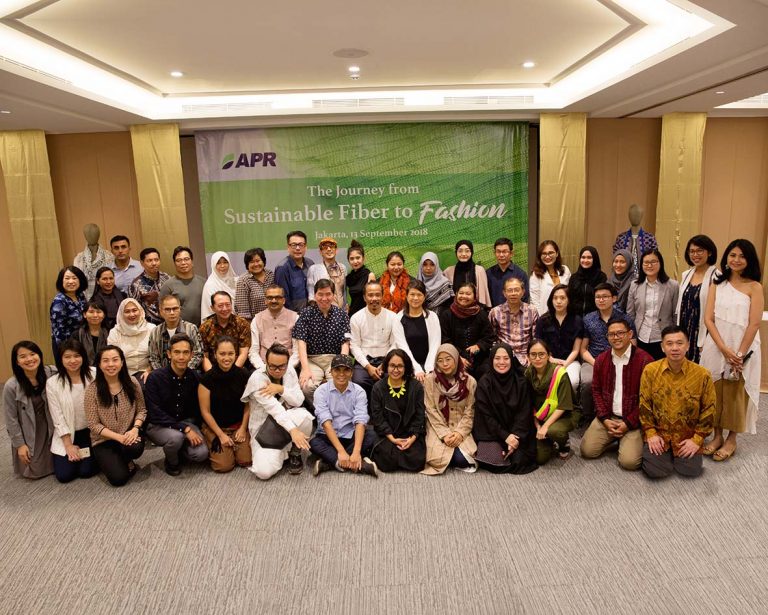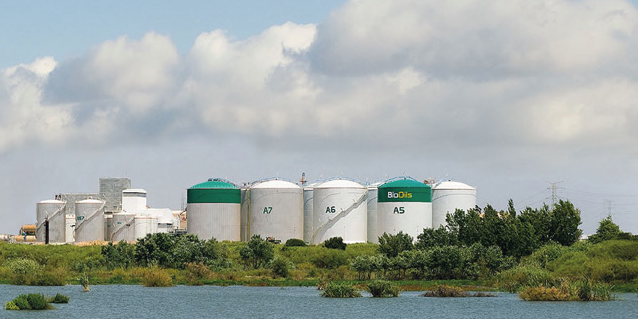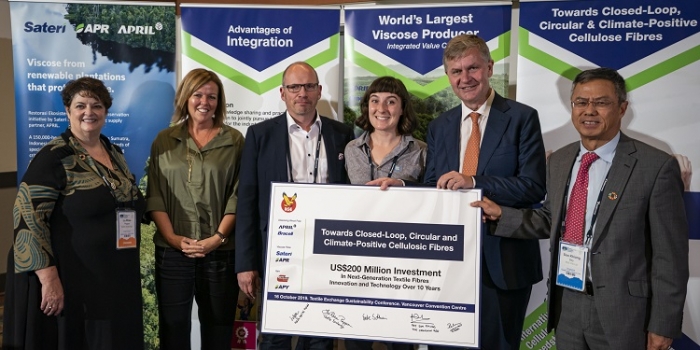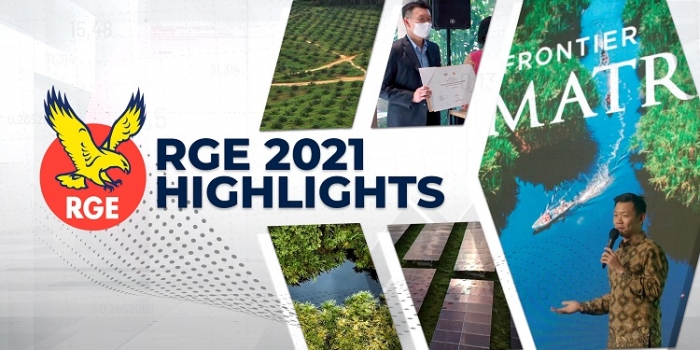Asia Pacific Rayon (APR) has become the newest business group to be managed by RGE. Based in Riau, Indonesia, APR will seamlessly source dissolving pulp from co-located RGE pulp and paper business group APRIL to produce viscose fibre. APR’s mill has an initial annual production capacity of 240,000 tonnes and is set to commence production later this year.
APR seeks to produce top quality products to meet the needs of customers both domestically and abroad. It joins China’s leading viscose producer Sateri to form a growing viscose fibre business within the RGE group of companies. With mills in Fujian, Jianxi and Jiujiang, Sateri’s expansion plans put it on track to become the world’s largest viscose producer by 2020.
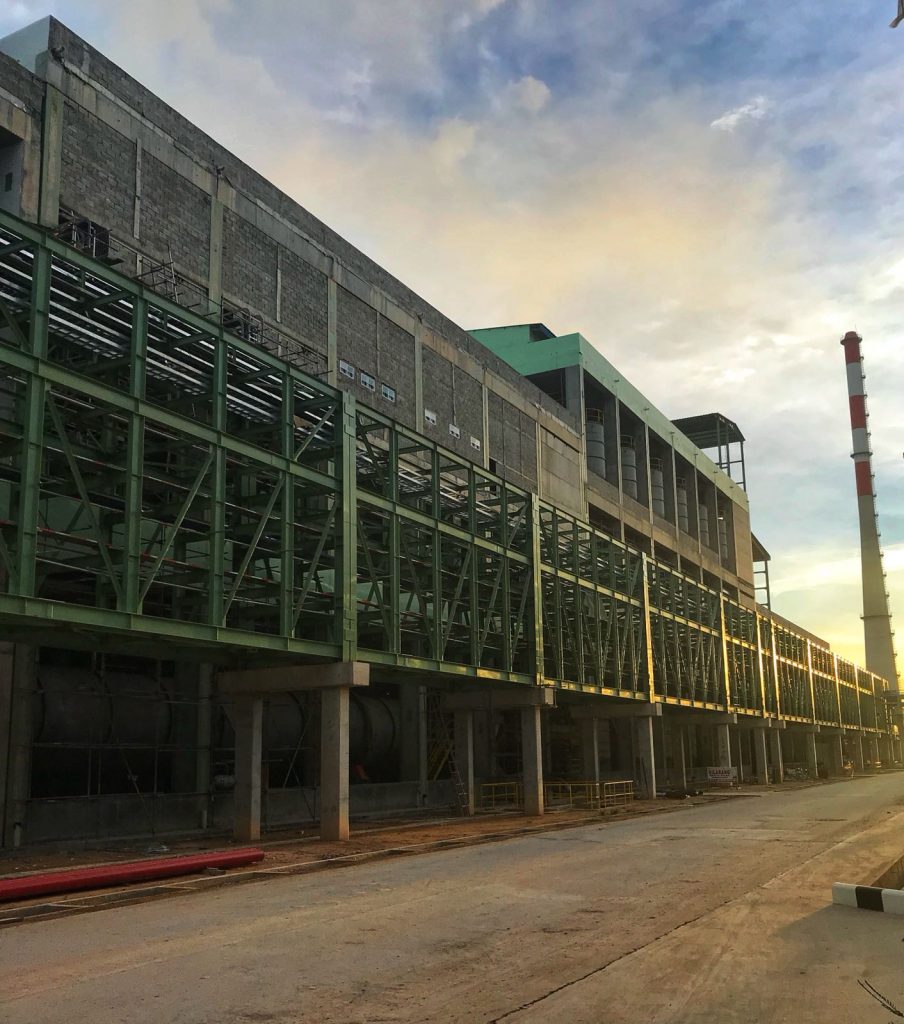
APR’s mill is set to commence operations by this year
Aligned to RGE’s overarching Forestry, Fibre, Pulp & Paper Sustainability Framework, APR upholds and adopts the principle of No Deforestation and only sources wood fibre from sustainably managed plantations and forests. It is also committed to clean production of viscose fibre, including working to reduce greenhouse gas (GHG) emissions, improve carbon disulphide (CS2) recovery, and implement waste water management best practices. Lastly, the company aims to improve the quality of lives of communities in their area of operations.
From Sustainable Fibre to Fashion
In preparation for the launch, APR hosted a roundtable of 45 representatives from the Indonesian fashion industry in September.
With the theme “The Journey from Sustainable Fibre to Fashion”, the event was attended by members of the Indonesian Fashion Chamber (IFC), customers, as well as representatives from fashion institutes LaSalle College Jakarta and Istituto di Moda Burgo.
During the gathering, participants were introduced to viscose fibre as one of the available materials they can use for sustainable fashion.
APR Deputy Head Ben Poon shared the company’s unique value proposition in the supply chain being the only player to source, manufacture, and produce viscose fibre entirely in Indonesia. The company also champions an ‘Everything Indonesia’ campaign, celebrating the continuing transformation of Indonesia’s fashion industry, and promoting the country’s textile industry to the world.
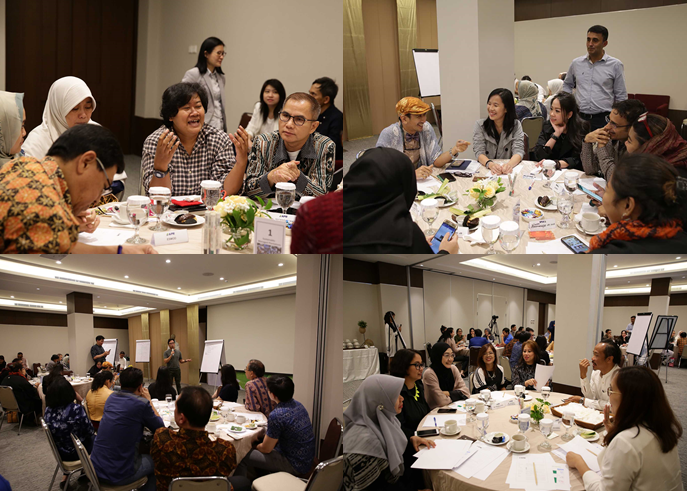
In the panel discussion on Indonesia’s fashion industry, IFC President Ali Charisma encouraged designers to pursue their dreams in the country. “Don’t chase your dreams abroad. Your future is here. We have the resources, culture, artisanship and workforce in the country. All these, plus partnerships with companies willing to work with us will make Indonesia’s fashion great again.”
Another panellist, Novita Yunus, Founder and Creative Director of Batik Chic invited local designers to promote Indonesian identity globally. “Local Indonesian fashion designers can take the lead, create more authentic designs that can go global,” he said.
– – –
RGE manages a group of resource-based manufacturing companies with global operations. Our work ranges from the upstream, comprising sustainable resource development and harvesting, to downstream, where our companies create diverse value-added products for the global market. Our commitment to sustainable development underpins our operations, as we strive towards what is good for the community, good for the country, good for climate, good for customer, and good for company. RGE was founded in 1973 by Sukanto Tanoto as RGM. The assets held by RGE companies today exceed US $18 billion. With more than 60,000 employees, we have operations in Indonesia, China, Brazil, Spain and Canada and continue to expand to engage newer markets and communities.
